Interview Analysis: Community Health Worker Role and Responsibilities
VerifiedAdded on 2022/08/31
|5
|960
|14
Report
AI Summary
This report presents an interview with a community health worker, exploring various aspects of their role and responsibilities within the community. The health worker discusses their use of an online system for record keeping, emphasizing its importance for quality patient care and effective communication. They share experiences advising community groups on public health issues such as diet during a cholera outbreak, highlighting strategies for promoting hygiene and food safety. The interview also covers challenges faced in advising clients on intellectual and social development, including parental negligence, language barriers, and cultural beliefs. Furthermore, the health worker describes their experience with childhood immunization, the assistance provided to families for social services, and the frequency of home visits to high-risk individuals. Finally, the predominant health issues in the community, such as nutritional issues, prescription drug overdose, and HIV are discussed. The interview provides valuable insights into the multifaceted role of a community health worker and the challenges they face in promoting public health.
1 out of 5
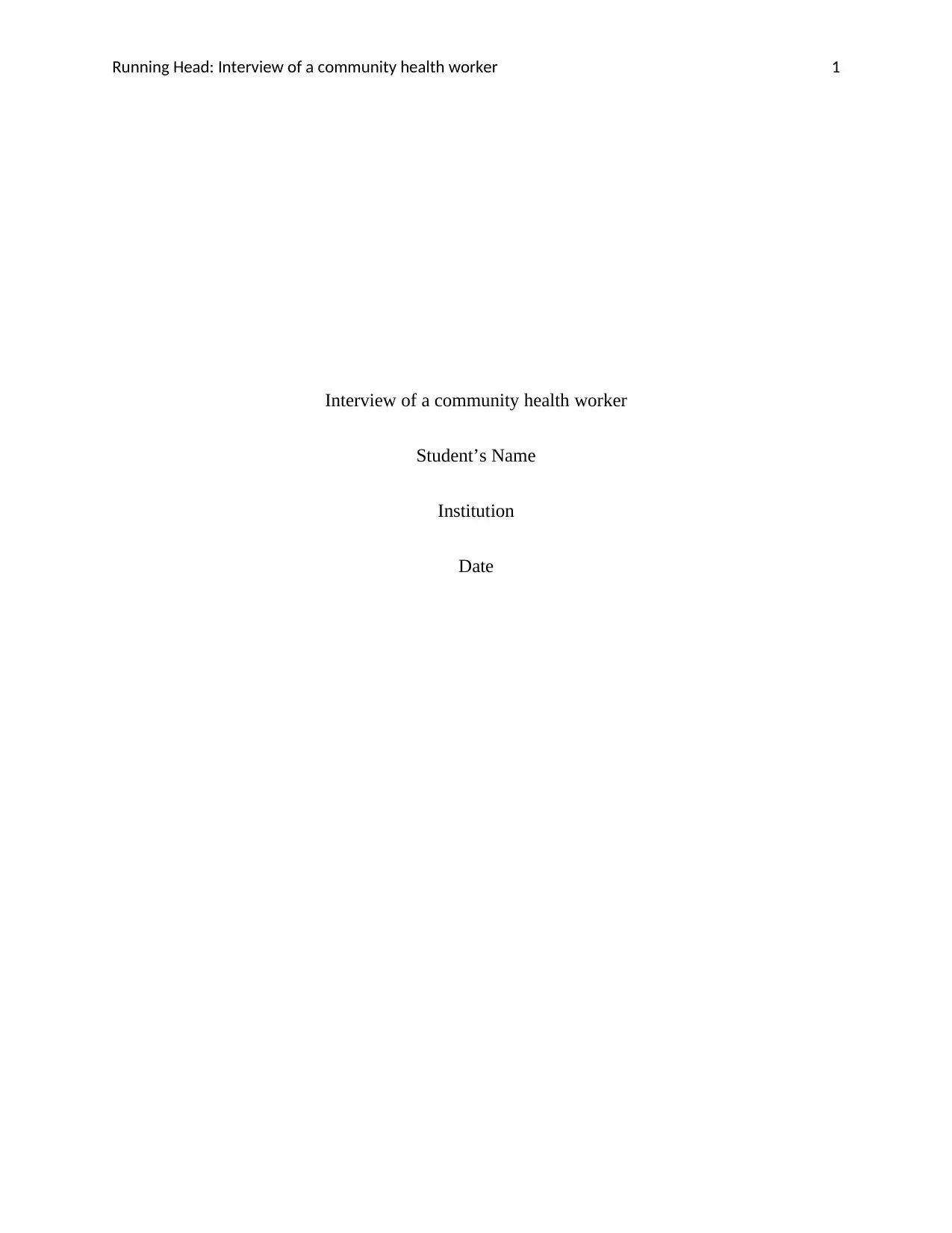
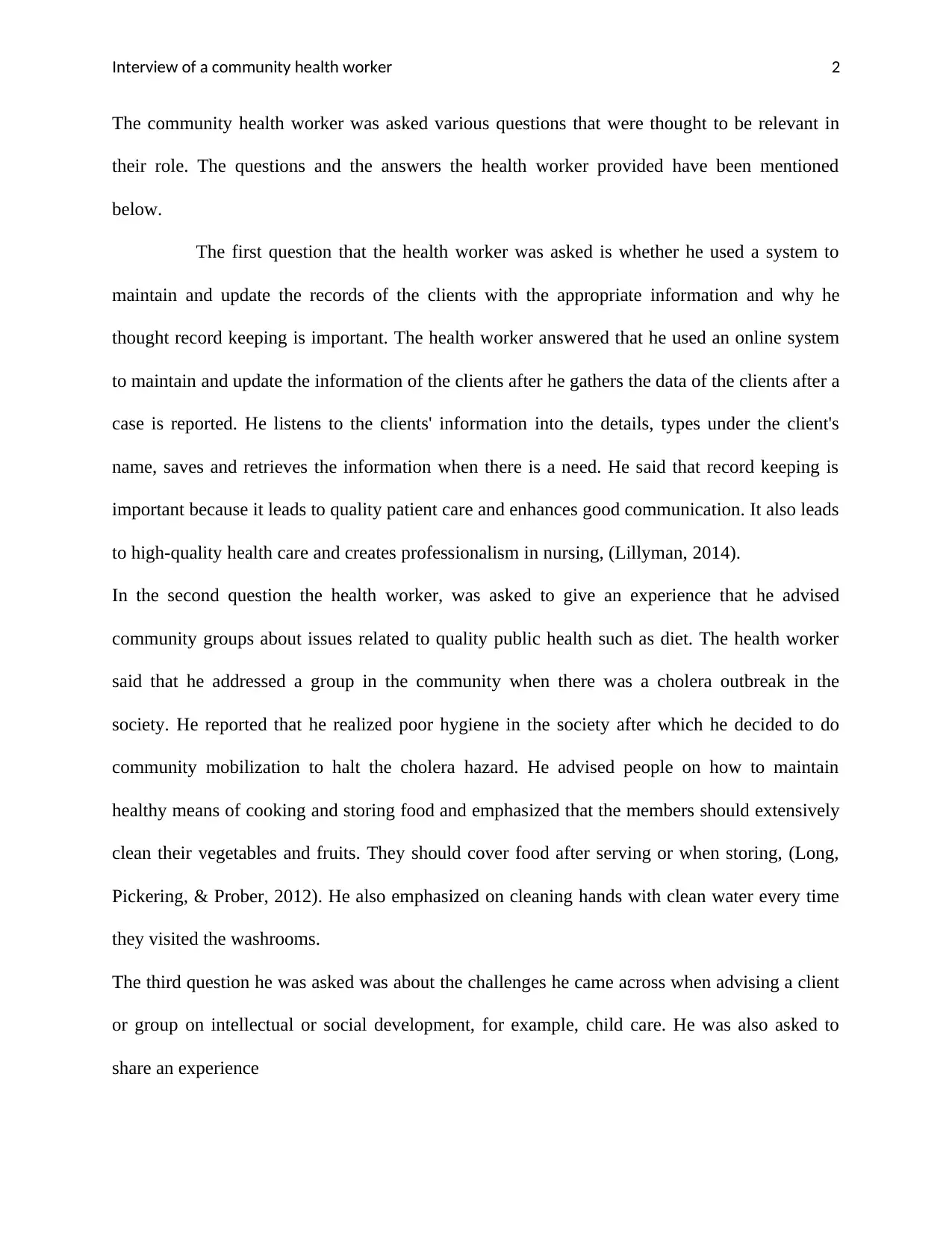
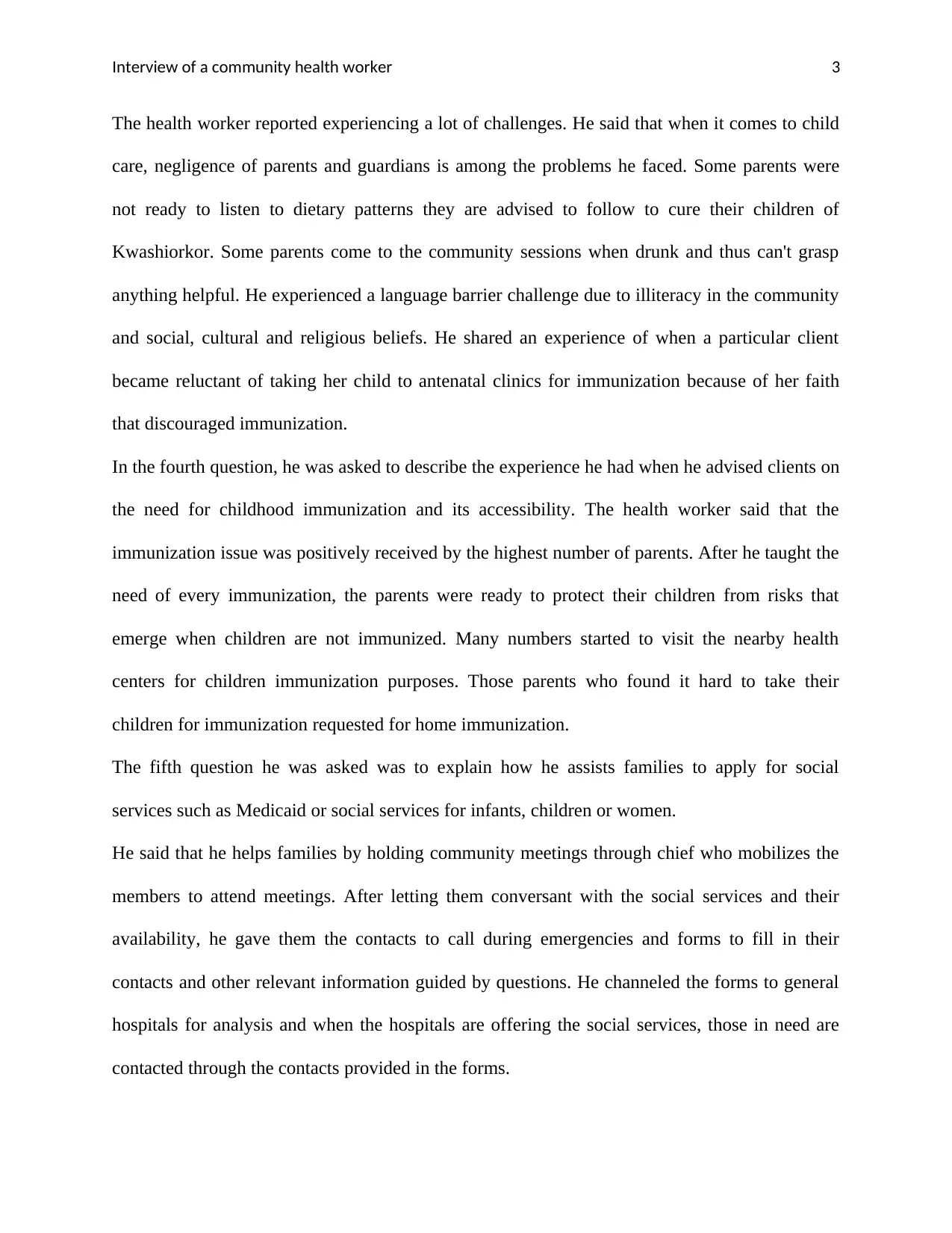

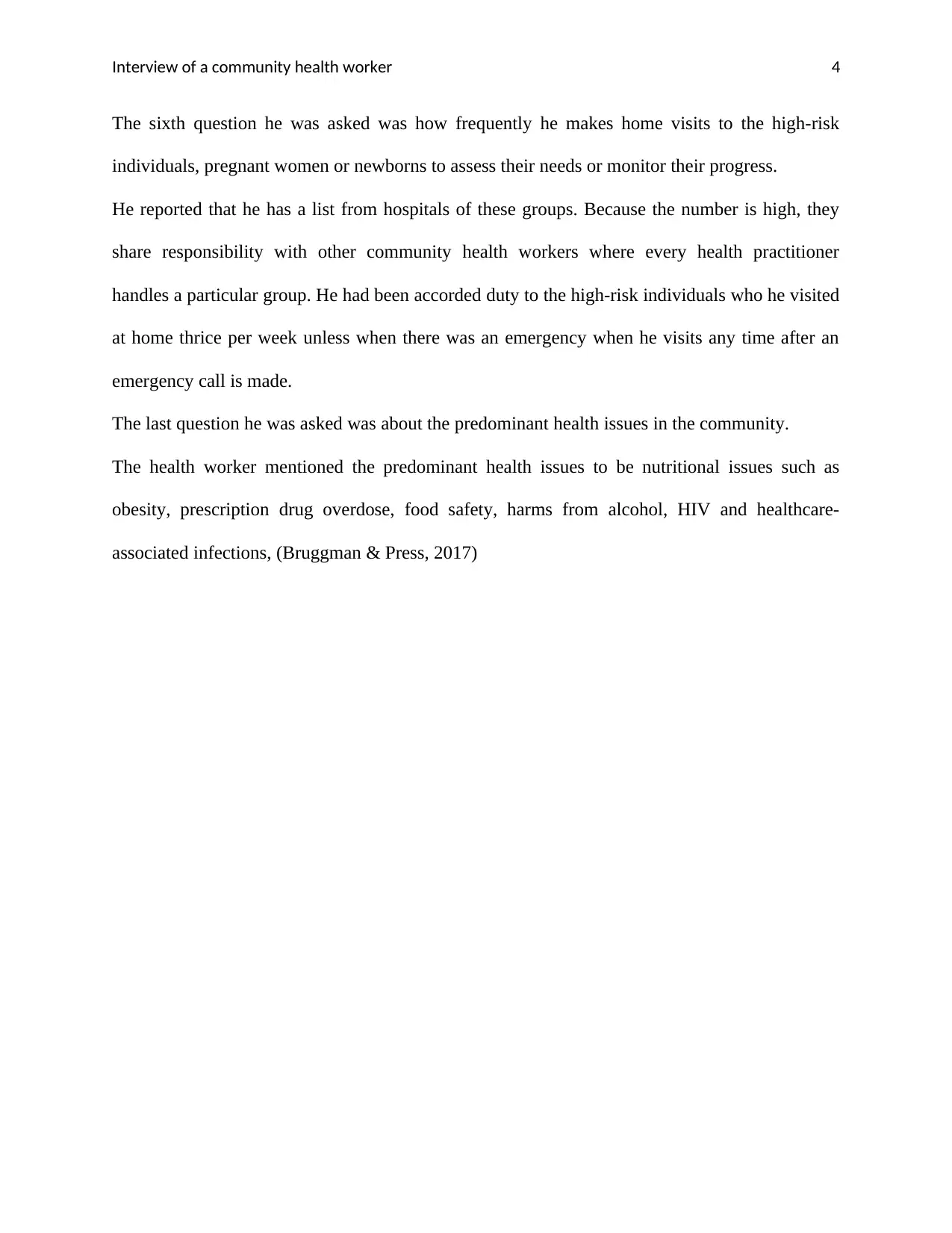
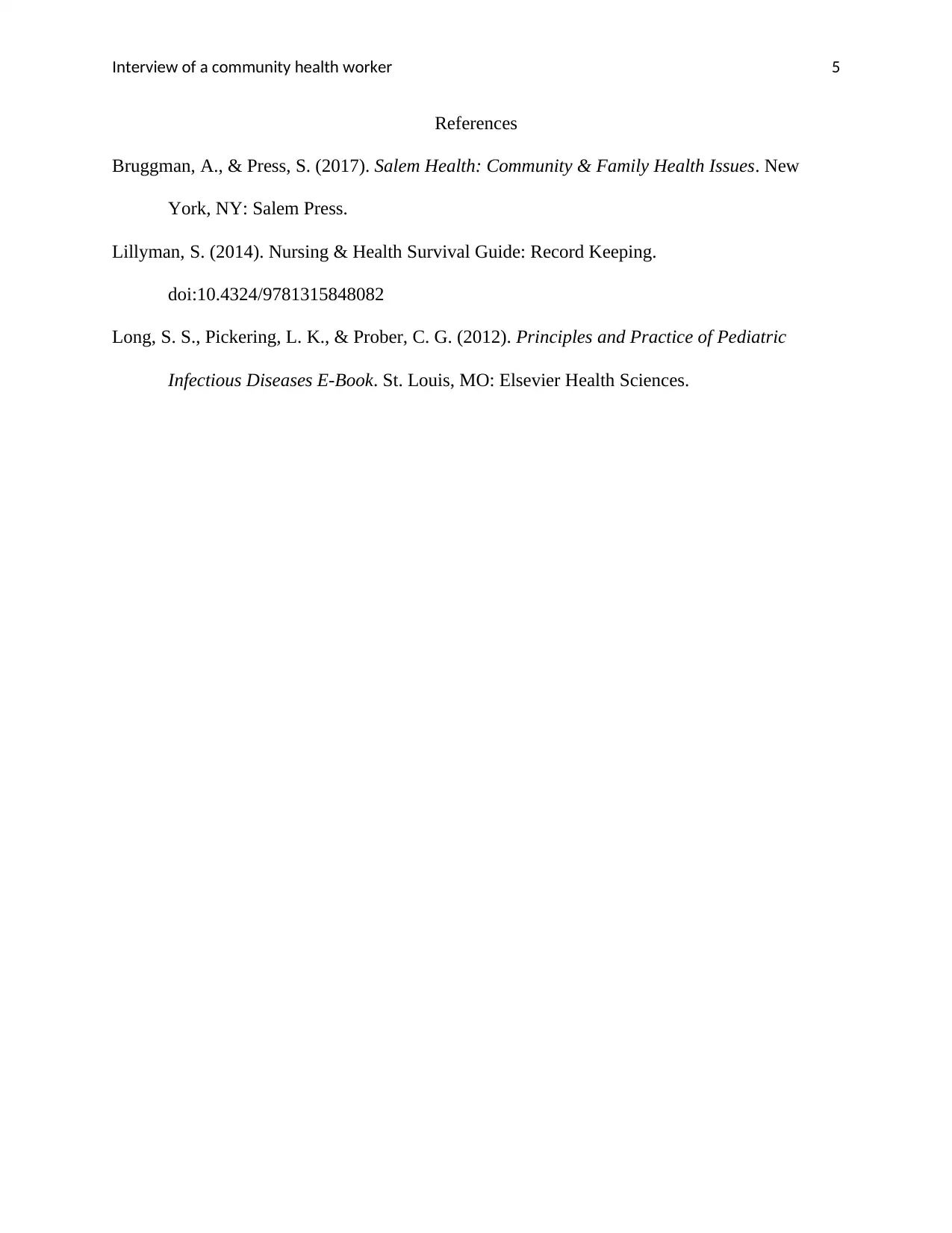






![[object Object]](/_next/static/media/star-bottom.7253800d.svg)